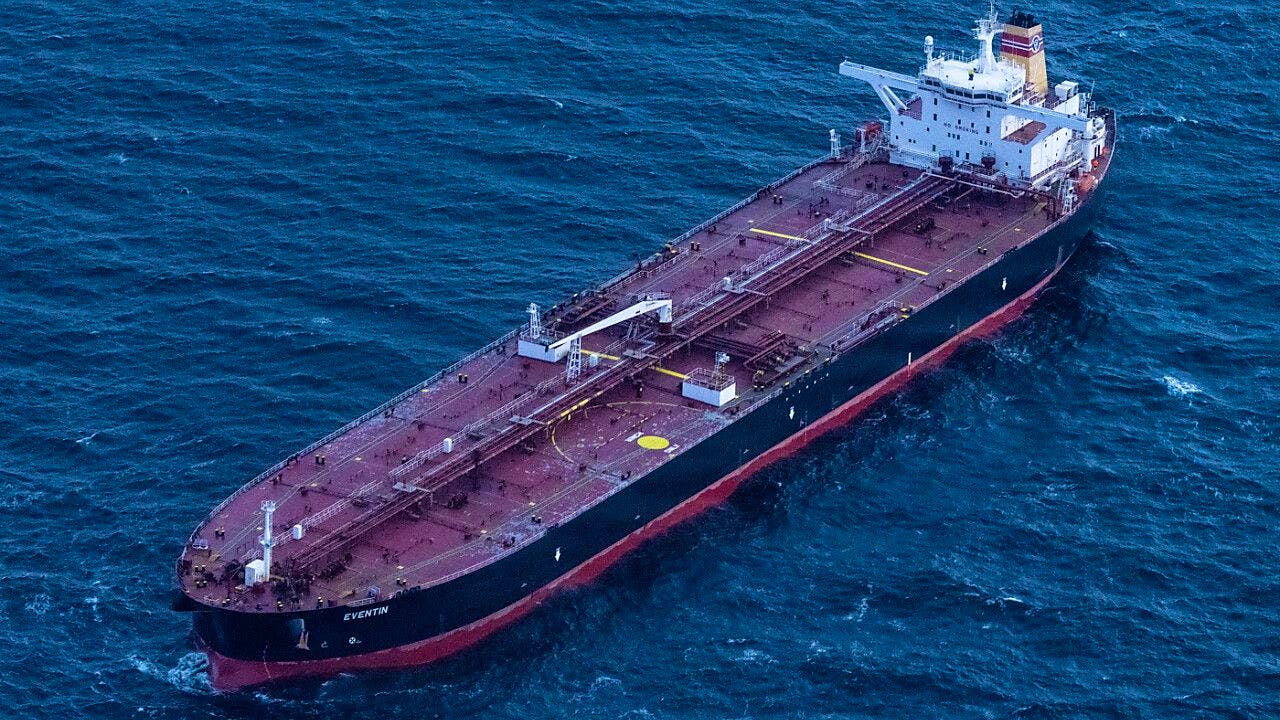The vessel had been traveling from Russia to Egypt when it was held for investigation by German authorities in January.
The German customs authorities have reportedly seized the oil tanker EVENTIN (the “vessel”), which has been anchored in the Baltic Sea since the beginning of the year. Due to an engine failure, it drifted into German coastal waters and German jurisdiction. This is the first time the German authorities have taken such steps.
A spokesperson for the Federal Ministry of Finance stated that “the seizure has created the conditions for the use of the vessel and its cargo,” noting that a crew change has already taken place. The ministry stated that it is not possible to provide further information due to ongoing customs procedures at this time.
Added to Annex XLII of Regulation EU
The vessel was only recently added to Annex XLII of Regulation EU 833/2014 under the EU’s so-called 16th sanctions package of 25 February 2025, because of reported evidence that it had been used to “transport crude oil or petroleum products listed in Annex XXV originating in or exported from Russia, and to engage in irregular and high-risk transport practices”.
Related : Georgiy Klyuyev writes : Environmental Disaster in the Black Sea

Sanctions violations
Enforcement measures, such as the seizure (Einziehung) and/or prior attachment (Beschlagnahme) of assets, are not expressly provided for in the EU sanctions regulations.
They generally require a specific legal foundation in the applicable national law. In addition to the rather general rules of the German law on criminal procedure,
Related :U.S Sanctions On Russian Tankers Still Under Construction
German authorities can justify seizures within the framework of sanctions violations on special provisions contained in the German Foreign Trade Act (Außenwirtschaftsgesetz, AWG) and Regulation (EU) No 952/2013 of the European Parliament and of the Council of 9 October 2013 laying down the Union Customs Code Union Customs Code (UCC).
A strong arguments
There are strong arguments to suggest that vessels – such as EVENTIN – can legally be seized or previously attached in line with Section 20 AWG if they enter German territorial waters and if it can be established that they were used for illicit operations as outlined in Section 17 et. seq. AWG. These include, in particular, violations of Article 3n of Regulation (EU) No 833/2014, for example the transport of Russian oil if it was traded above the oil price cap.
Cannot be released into a customs procedure
Furthermore, the cargo of such vessels – namely the so-called “shadow fleet” – in most cases cannot be released into a customs procedure due to existing trade restrictions. In relation to Russian oil, Article 3m of Regulation (EU) No 833/2014 is particularly relevant. Hence, there are good arguments to suggest that the relevant authorities could legally seize the cargo, too (Article 198 (1) (d) UCC).
What we know about the Eventin
The ship’s presence, floating in the Baltic Sea near the island of Rügen, had sparked environmental concerns about the danger of a potential oil spill.
The vessel had been traveling from Russia to Egypt when it was held for investigation by German authorities in January.
The news magazine reported that authorities were determining how best to safely pump crude oil from the tanker, and deciding what to do with the vessel. Officials confirmed only that the ship was prohibited from continuing its journey.
Security analysts say Russia is operating hundreds of vessels to get around the sanctions imposed on its oil exports over its 2022 invasion of Ukraine.
Related :The tragedy of Shadow ship discovered adrift off the Baltic coast




